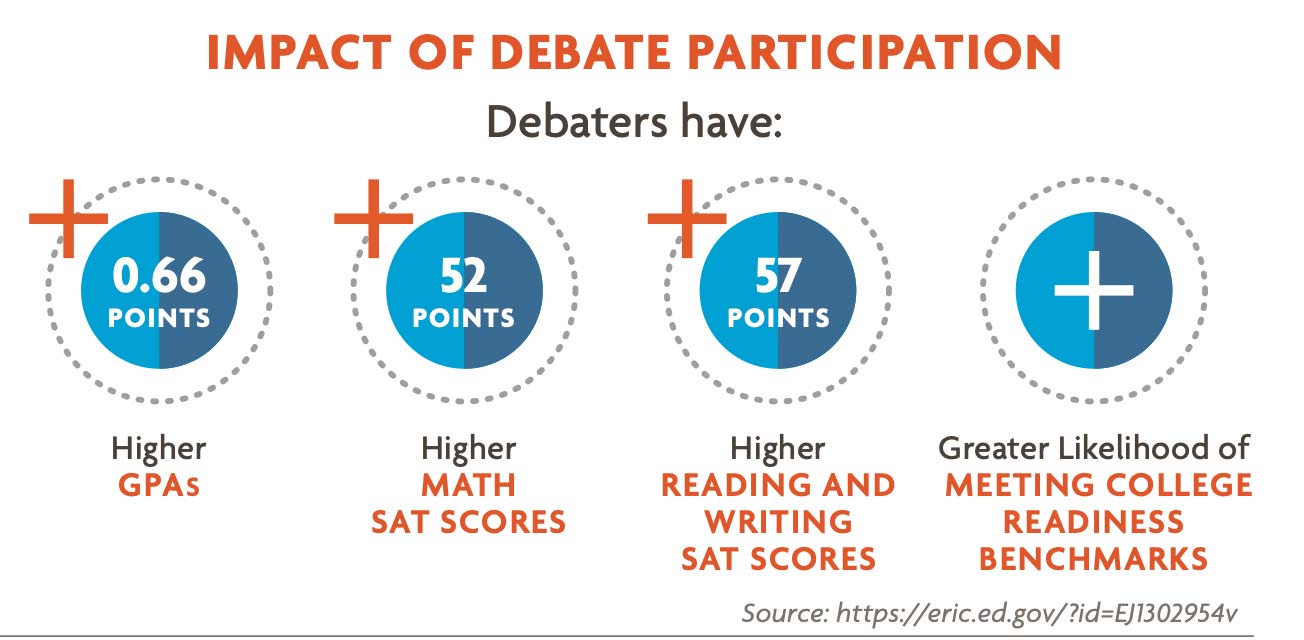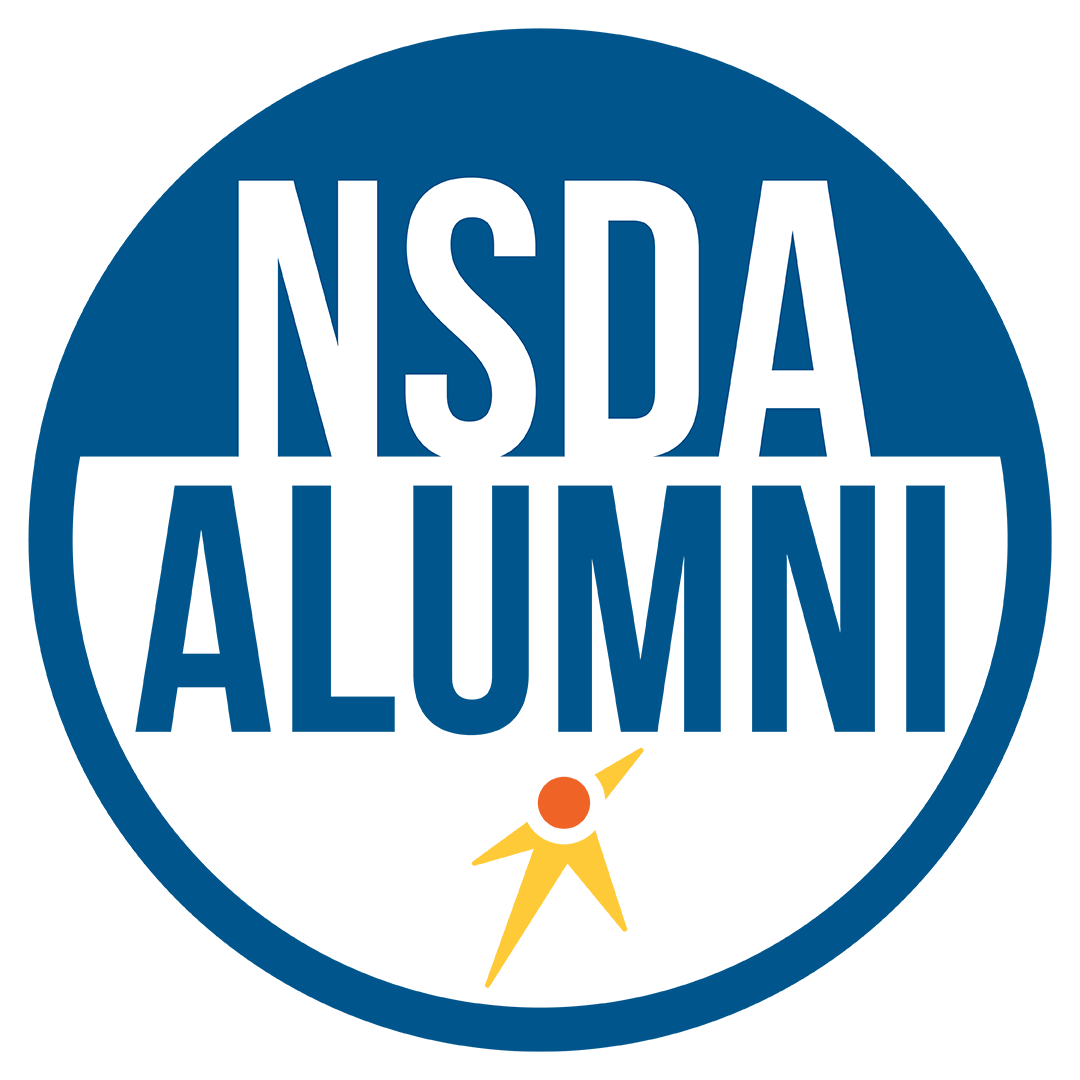Debate Participation Increases College Readiness

Published in Academic Journals.
Competitive debate programs exist across the globe, and participation in debate has been linked to improved critical thinking skills and academic performance. However, few evaluations have been able to adequately address self-selection into the activity when examining its impact on achievement. This study evaluated the relationship between participating in a debate program and academic performance among high school students (N=35,788; 1,145 debaters and 34,643 non-debaters) using linked debate participation and academic record data from the Houston Independent School District.
Academic performance was indicated by cumulative GPA and performance on the SAT college entrance exam. Selection into debate was addressed using propensity score methods informed by sociodemographic characteristics and 8th grade standardized test scores to account for pre-debate achievement. Debate participation was associated with 0.66 points (95% Confidence Interval (CI): 0.64, 0.68) higher GPA, 52.43 points (95%CI: 50.47, 54.38) higher SAT Math, and 57.05 points (95% CI: 55.14, 58.96) higher SAT Reading/Writing scores. Findings suggest that competitive debate is associated with better academic outcomes for students.INTRODUCTION
There are persistent gaps in academic achievement and college-readiness in urban, public school districts, especially among lower income and minority students (Banerjee, 2016). Policy makers and educators have advanced extracurricular learning to address these achievement disparities (Marsh and Kleitman, 2002). However, there is limited quantitative evidence supporting the effectiveness of extracurricular programs at improving academic outcomes for lower income and/or minority secondary school students, especially regarding college-readiness. Research is particularly needed in districts that predominantly serve Latino/Hispanic students, the fastest growing group in K-12 schools (US Department of Education, 2020). De facto segregation by race and ethnicity remains in the US public school system. According to the US Department of Education, 95% of Hispanic and 96% of Black students attend a school that is at least 25% racial/ethnic minority; in comparison, only 52% of non-Hispanic white students attend a school that is at least 25% racial/ethnic minority (US Department of Education, 2020).
Competitive debate is a co-curricular activity centered on the communication of evidence-based argumentation. Pairs of students work together to debate both sides of policy-relevant topics (e.g., government support for renewable energy), and in the process practice academic skills including reading and interpreting complex non-fiction text, developing and responding to arguments orally and in writing, collaborative and cooperative learning, and time management (Mitchell, 1998). Debate leagues continue to grow worldwide, with international tournaments drawing debaters from up to 60 countries (English-Speaking Union, 2020). In addition, there is a large body of qualitative evidence supporting the positive impact of debate on critical thinking skills, school engagement, and personal development (Louden, 2010).
Connect With US

How has speech and debate changed your life?

Click here to claim your FREE alumni membership.

Learn more about the Speech and Debate Initiative.
